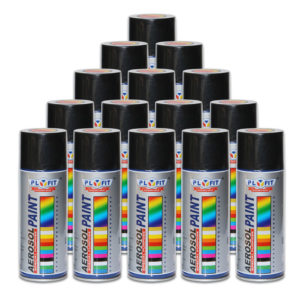All About Sun Spiders and Best Ways To get Rid Of Them
It’s not always fun to discuss, but getting past the ick of pest control can make your home life so much more comfortable.
There are many pests out there that can be a cause of concern for average households.
One of the more vigilant and nerve-wracking pests is a constant worry for those who have crossed its long-legged path. Sun spiders are large, hairy and often scary.
While they may be fantastic outdoor pest annihilators, they aren’t something you truly want living in, near or around your comfy abode.
The Basics:
These rather intimidating looking spiders aren’t venomous, but can give a mighty bite due to their powerful, muscular pincers. They can grow to be 3 to 6 inches across with their long, furry legs splayed. The shy spiders enjoy a bit of sun early in the morning, but they do tend to be more visible at night for those trying to get them when it counts. They aren’t easy to kill with typical poison in that they don’t venture to far from their well dug burrow. If you find a burrow, your best bet is to hire a professional or be prepared to crush the sun spider.
These night hunters are fast, voracious predators, which is useful if you have a roach problem. They are attracted to a healthy diet of certain pests and can hunt quite a few ugly night walkers that can otherwise be upsetting to the average household, such as German cockroaches, silverfish, wolf spiders, moths and sugar ants. If you have found a vigorous sun spider in or around your home, don’t be alarmed. They tend to stick to a healthy diet of certain outdoor pests and aren’t up to the noise and confusion of the typical household indoors. However, if you have stumbled upon a sun spider in your yard or home, you may need to consider other pest problems that have remained hidden so far.
Diet:
Sun spiders enjoy lush grounds where they can find an abundance of crunchy critters. However, while they may be large and hairy, they are relatively harmless. They normally have no venom. They do boast a healthy and formidable jaw to take out black widows, brown recluses and other household villains. They are known to eat:
Lizards
Snakes
Habitat:
Sun spiders love a good desert. They don’t nest as scorpions do, but they are fantastic diggers and will make a home where the food is plentiful. The little wells that they dig with their pincers are easily visible during the day if you are looking at the base of tree trunks and other areas that have soft soil. This is a perfect place to deposit eggs for females. These shallow wells can cause a problem for very small children and pets who stumble into the underground home of unsuspecting ground-digging spiders. The bite may be harmless, but it can also leave a bit of a welt due to the ground-spider’s formidable jaws. Medical attention is necessary if the teeth of a large spider pierce through human flesh and redness and inflammation occur.
Avoiding Spiders
These pests actually abhor the sun. If you have a shaded area with a soft ground cover, such as sand or recently turned dirt, a sun spider can find refuge there while it waits to feed on other nocturnal insects such as roaches or smaller spiders. If you have small holes in the outside walls of your home, specifically stucco or wood siding, caulking these holes can help diminish any spider population. Screening over air vents and other ventilation areas can also keep you from having to flush these pests out with a professional service.
Ridding the outside of your home from leaves, branches and other natural debris can also greatly decrease your chances of encountering a nasty nocturnal pest or any other eight-legged pest.
Natural Pest Control
Cedar, citrus and cigarettes. Pests greatly dislike anything to do with any of those three Cs. Even in the desert, where cedar mulch isn’t very helpful to garden beds, the traditional pest deterrent works wonders as a barrier to creepy crawlies around the base of your home. Sprinkle it around your entry ways and along the garage to keep the spiders at bay. Citrus peels rubbed along window seals and sidewalks keep the buggers from barging in. Small pieces of tobacco or bay leaves laid where spiders gather, in corners and stairwells, can push those nocturnal nemeses into the neighbor’s yard.
Bottom line:
These spiders can be aggressive creatures, a good thing for those who want to keep their insect, arachnid and lizard population down. However, these spiders can be a detriment to small children, pets and elderly people who come in direct contact with these rath
Non Toxic Spray

This non-toxic spray kills larvae, eggs, and adult insects by breaking down their exoskeleton. It is safe to spray around the home and works only on the insects. Feel good about spraying indoors around pets, plants and children.
All Natural Non Toxic Insect Killer Spray by Killer Green
